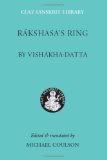 In 2007, speaking at the London School of Economics, Benazir Bhutto declared that nurturing Taliban was a mistake ; in the 90s it looked like a wise move. In 90s Afghanistan was in disarray: the Americans had left, various Mujaheddin warlords controlled the supply route from Pakistan to Central Asia, and there was no central leadership. Aided by Pakistan, Afghan refugees who attended Islamic schools took over Afghanistan and according to the view at that time – brought stability.
In 2007, speaking at the London School of Economics, Benazir Bhutto declared that nurturing Taliban was a mistake ; in the 90s it looked like a wise move. In 90s Afghanistan was in disarray: the Americans had left, various Mujaheddin warlords controlled the supply route from Pakistan to Central Asia, and there was no central leadership. Aided by Pakistan, Afghan refugees who attended Islamic schools took over Afghanistan and according to the view at that time – brought stability.
While handing over Afghanistan to Taliban looked like a bad idea after 9/11, we are now back to early 90s thought process again. The American plan calls for negotiating with “moderate” Taliban, through a combination of “political accommodation, financial rewards and astute exploitation of inter-tribal rivalries.” Thus the same entities against which a war was fought and is still being fought, by a simple switch, are going to be rewarded with power.
In Mudrarakshasa, Vishakhadutta’s 4th century novel about the battle of wits between Chanakya and the deposed minister Amatya Rakshasa, a question arises about reinstating people who were thrown out.
In Act III, there is a heated conversation between Chakakya and Chandragupta Maurya on why certain people switched allegiance to the enemy camp. Among them there are, Bhadrabahata, the superintendent of elephants and Purushadatta, the superintendent of horse. Chanakya explains that these two superintendents were given over to women, drinking and hunting. They neglected their duties and hence were removed from their posts.
Chanakya explains that two kinds of action can be taken against subjects who have grievances; they can be rewarded or they can be punished. In the case of Bhadrabahata or Purushadatta rewarding them would mean giving them their jobs back. To reinstate people who have been dismissed for incompetence, Chanakya explains, would be to strike at the very foundation of government.
The question in Mudrarakshasa is domestic politics while it is international terrorism in Afghanistan and the Taliban were removed from power, not exactly for incompetence. One point is moot though: you do not forget why they were dismissed in the first place; you do not give them an opportunity to commit the same crimes again.
Later in Mudrarakshasa, one of the characters Bhagurayana laments about politics.
Turning friend into foe, foe into friend
on grounds of practical advantages
Politics takes a man while he still lives
Into another birth where earlier memories are lost
Bhagurayana’s lament is true about geo-politics as well. There is no excuse, if a decade later, we look back at 2009 and repent like the 2007 Benazir.
